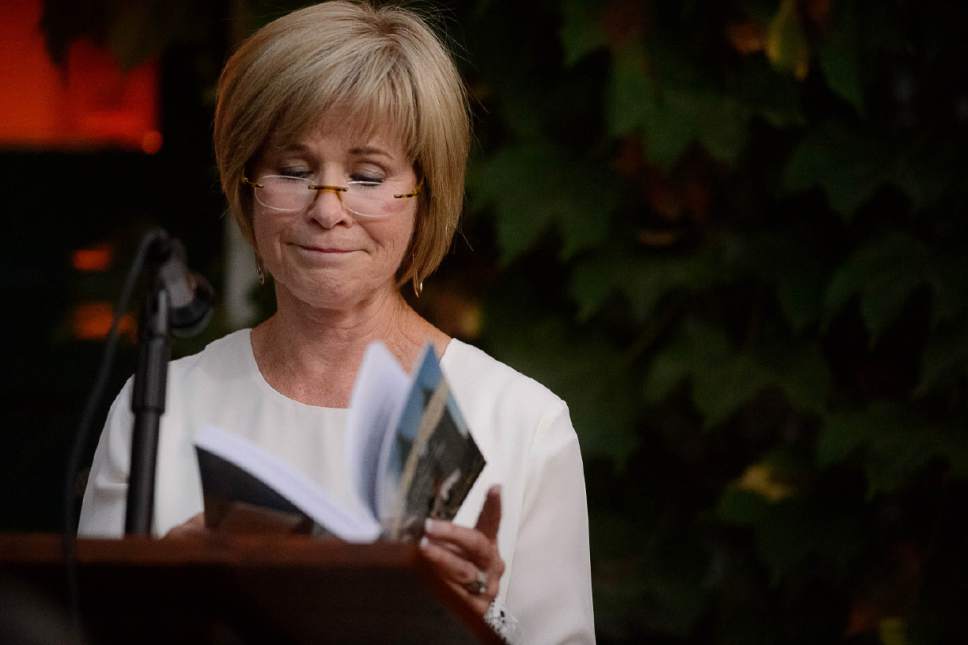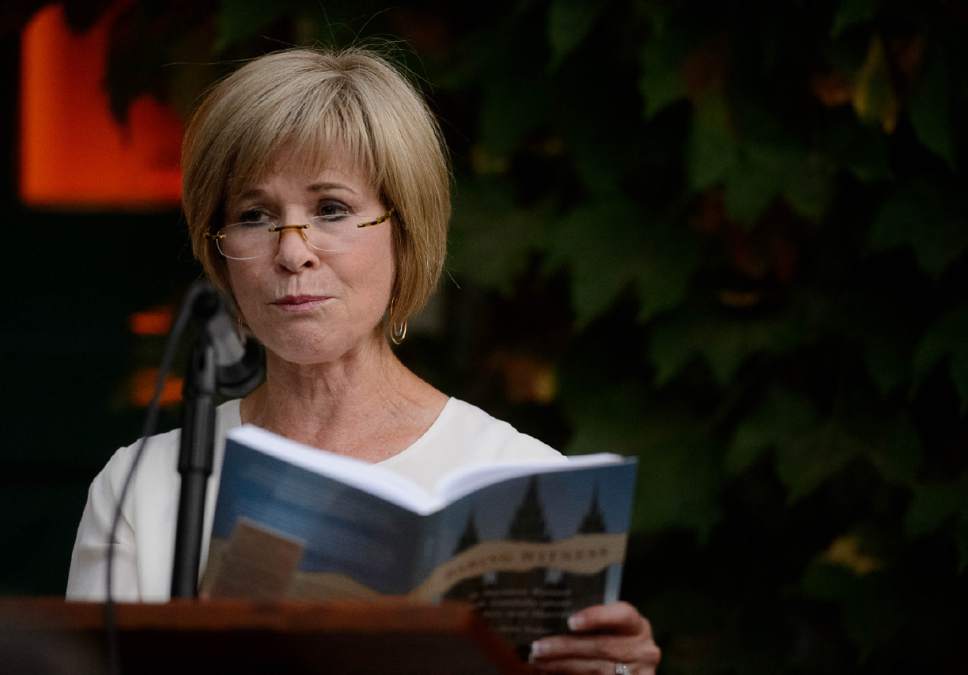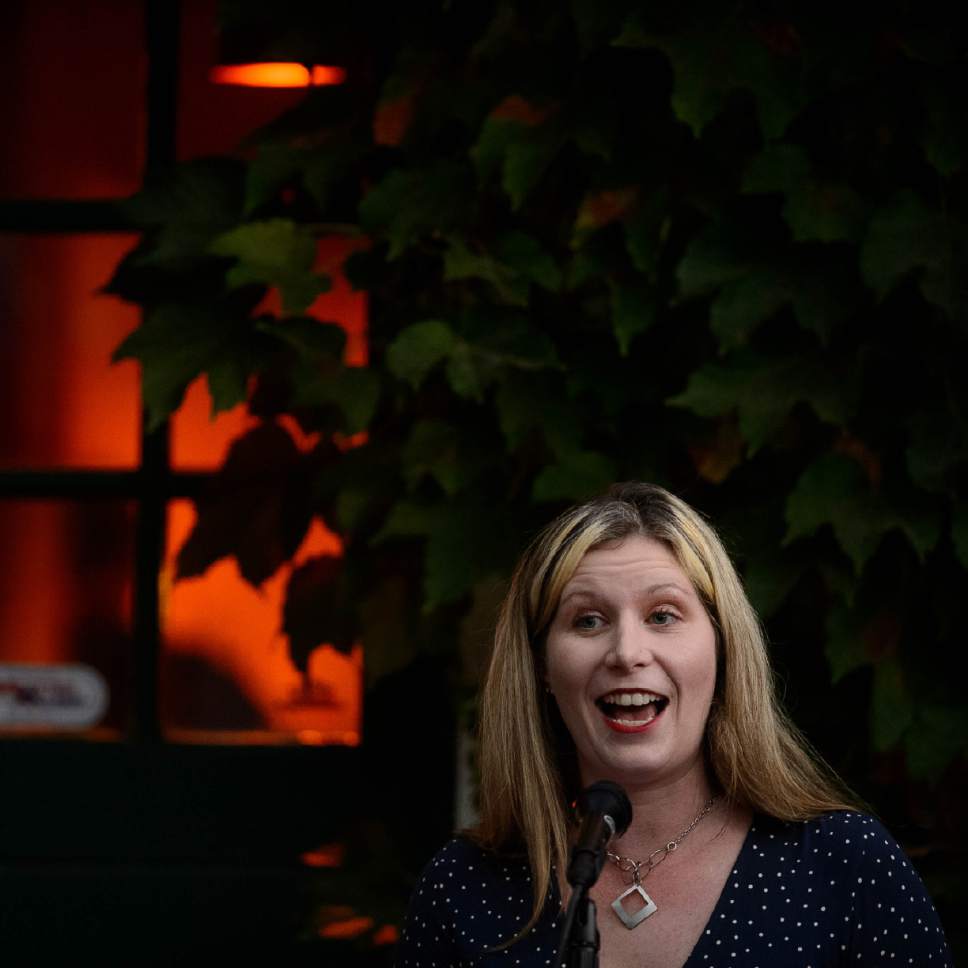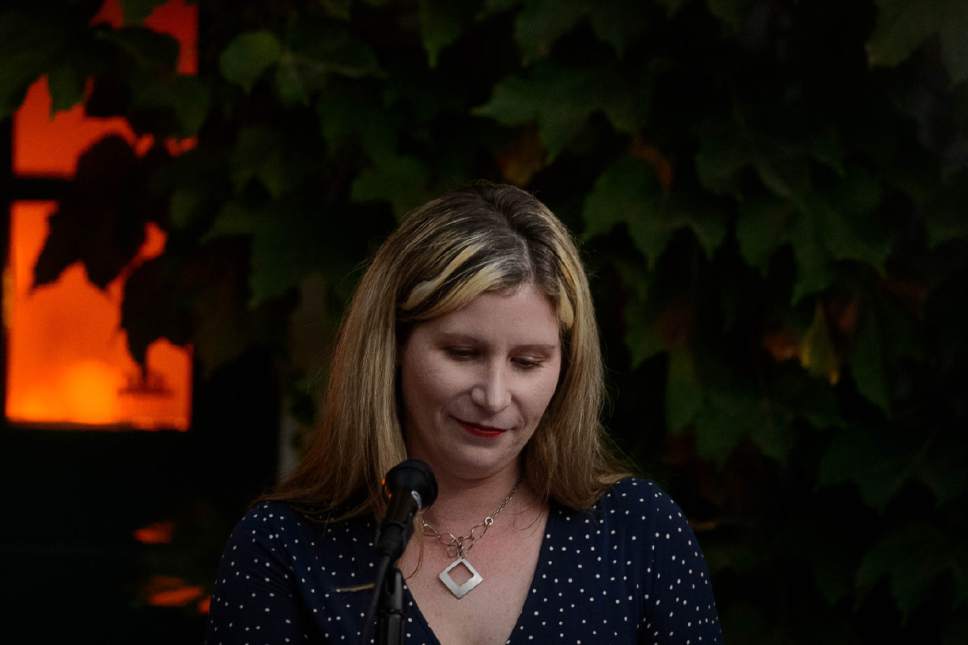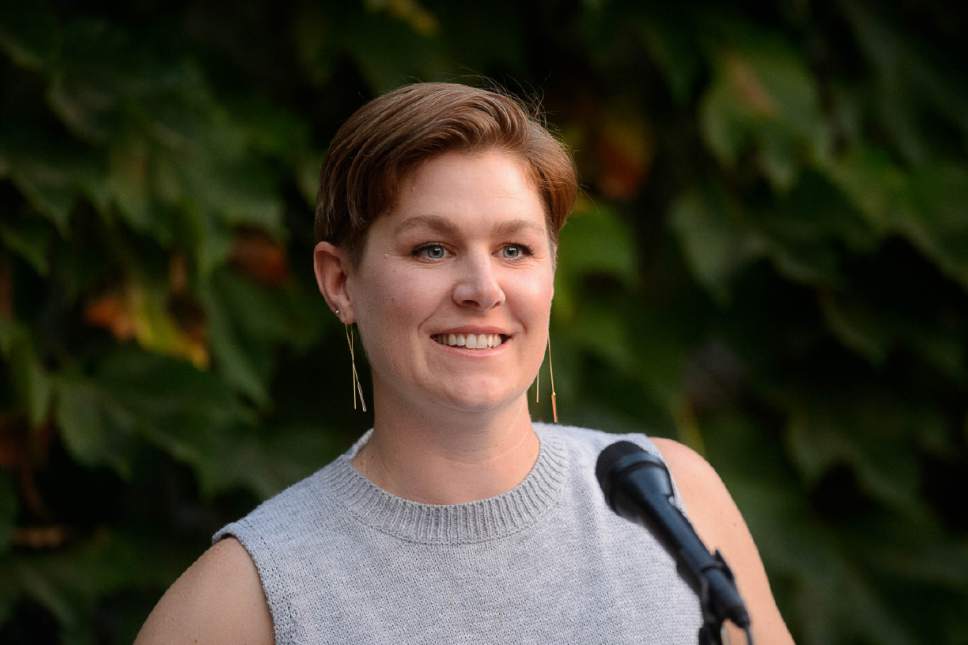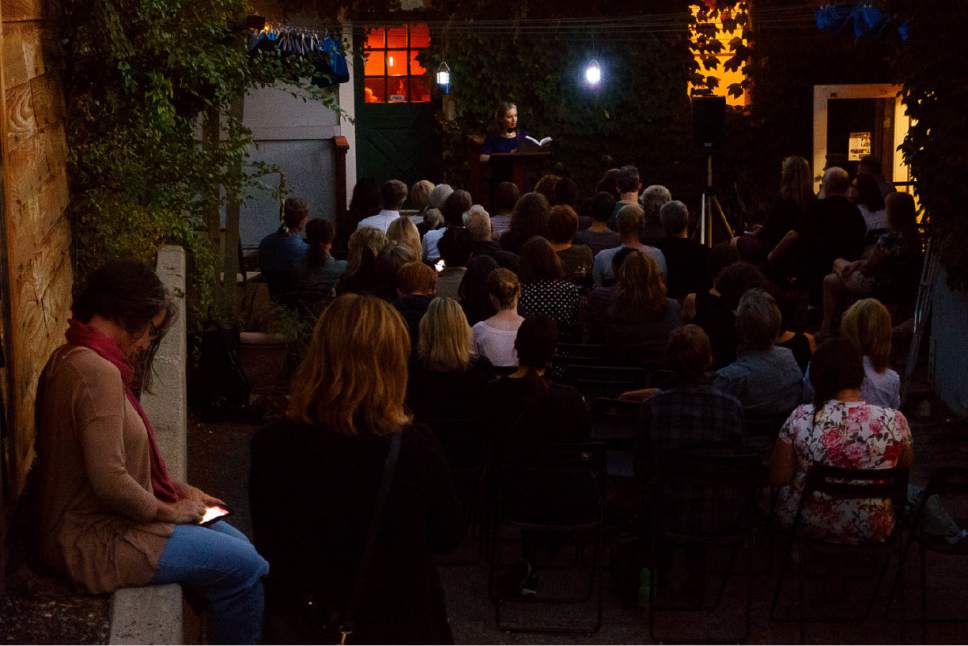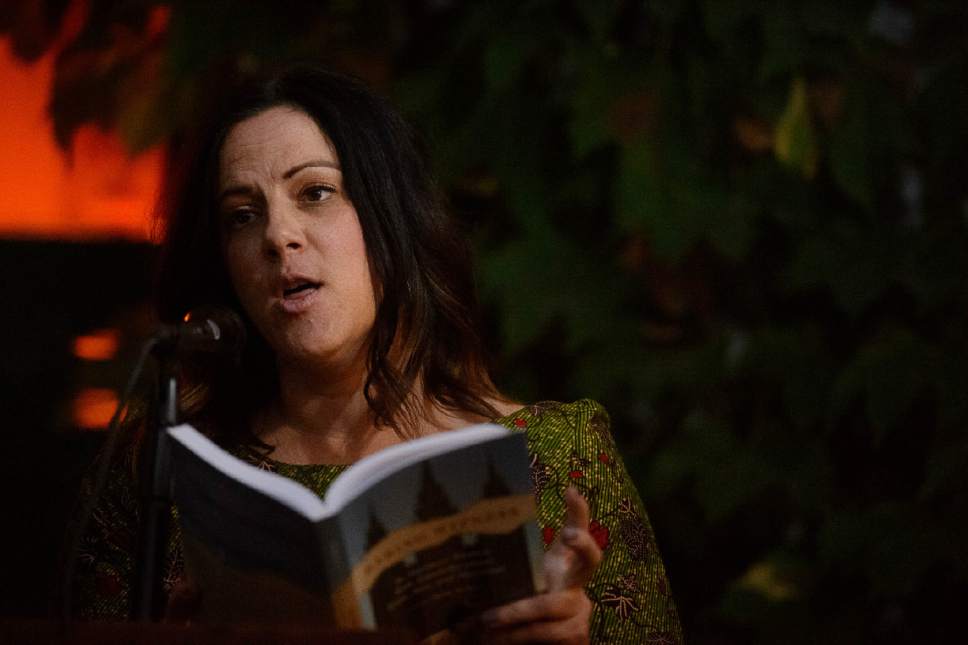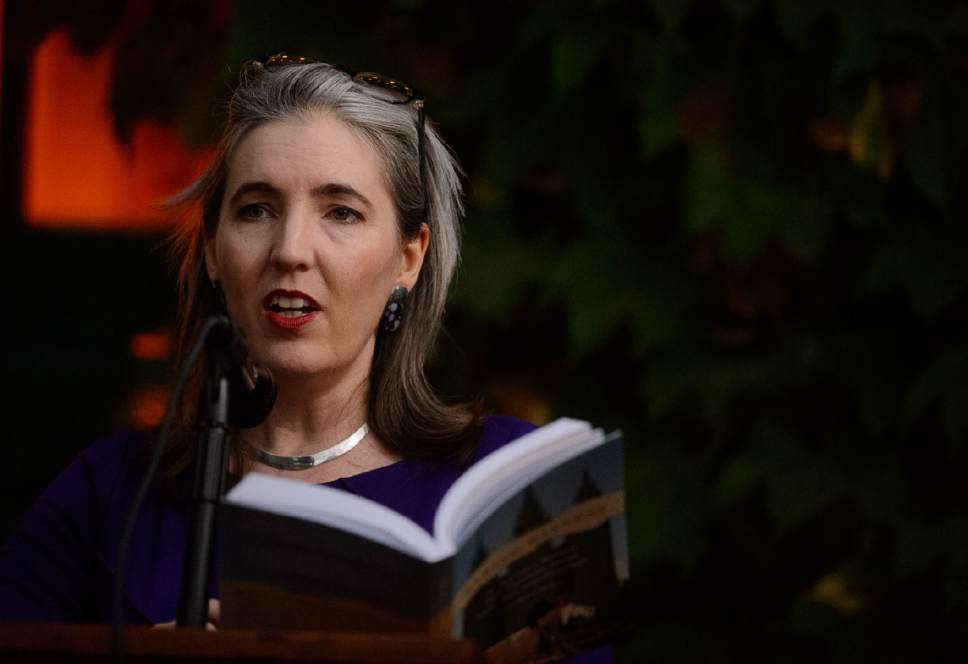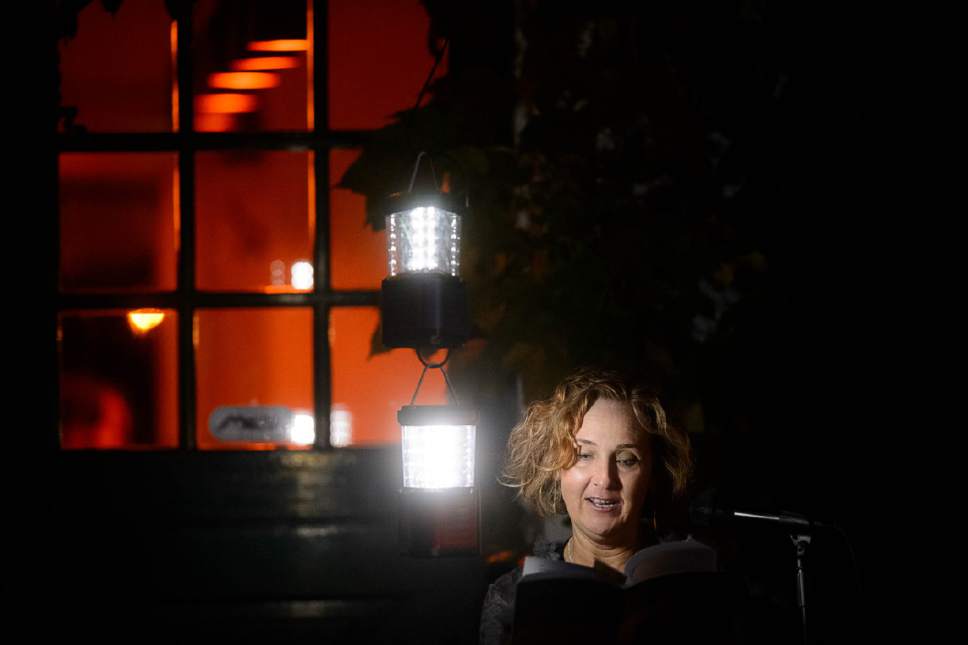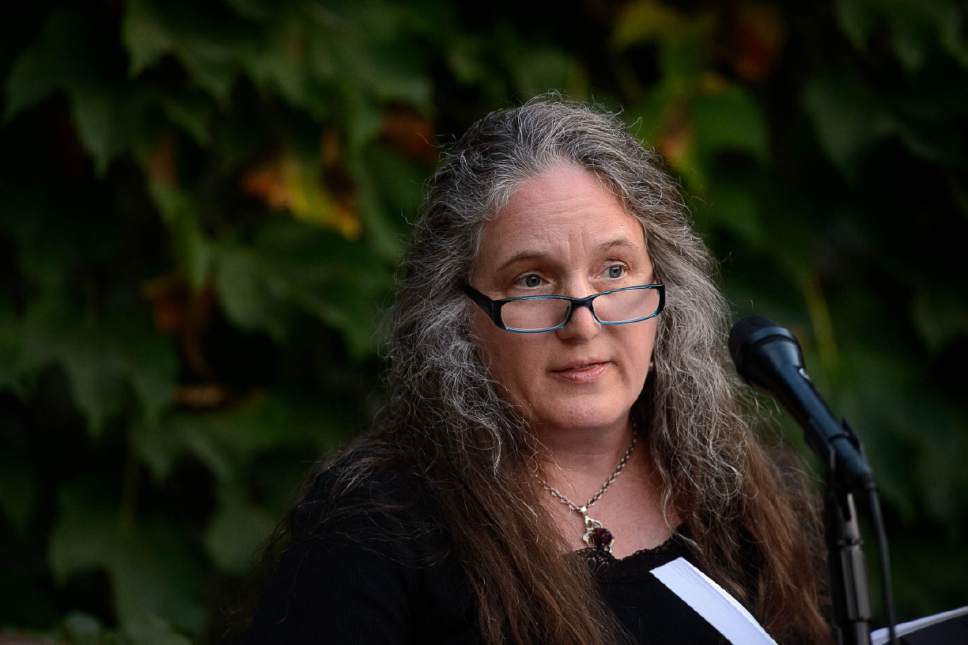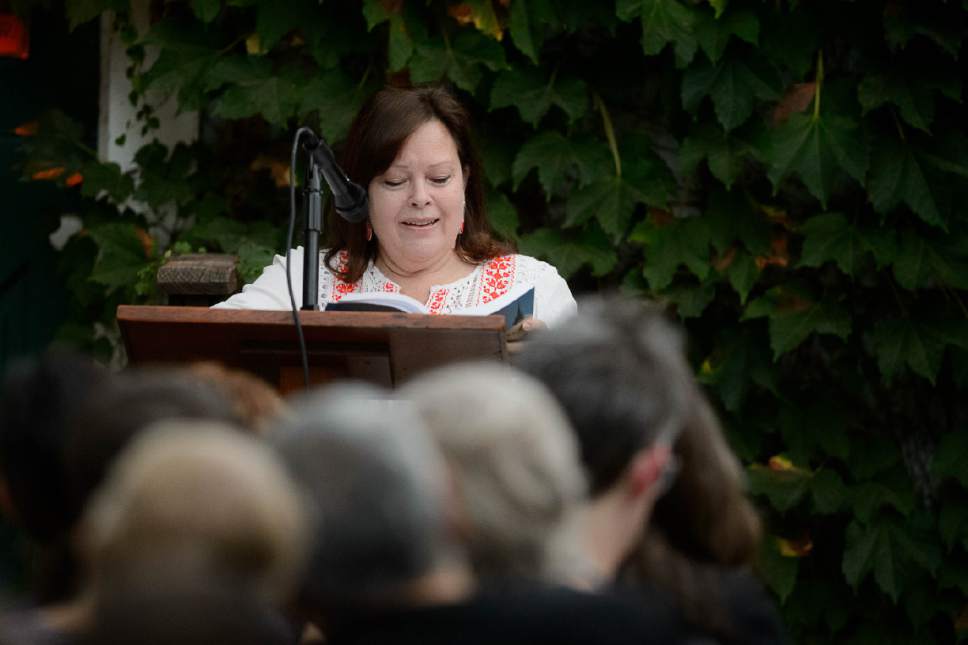This is an archived article that was published on sltrib.com in 2016, and information in the article may be outdated. It is provided only for personal research purposes and may not be reprinted.
Tolstoy may have believed happy families are all alike, but Holly Welker doesn't.
Plenty of happy families — especially Mormon ones — have surprisingly rich, angst-ridden, conflict-driven, yet resilient relationships. Others are done in by failed expectations or unexpected revelations.
Still others, of course, contain moments of misery, abuse, miscommunication, infidelity, betrayal.
Welker, an award-winning writer and editor, set out to find and tell these stories, compiling them into an arresting new volume, "Baring Witness: 36 Mormon Women Talk Candidly About Love, Sex, and Marriage."
They are married, divorced, single, lesbian or widowed — and fall all along the spectrum of LDS belief and behavior. Some remain involved, some married outside the faith but continue to be committed, some have long since stopped practicing — but all have been influenced by the teachings and practices of the Utah-based Church of Jesus Christ of Latter-day Saints.
Some husbands are equal partners, some lose their own faith, some are traditional, some become unorthodox, some offer support and trust, some are cheaters, some face mental illness, some are empowering, some are gay and some dole out physical and emotional abuse.
"At midnight, after the Holy Ghost had gone to bed, George would begin to whisper in my ear … 'You're a slut and a whore. … When you stand before the judgment bar of Christ, he will cast you into outer darkness.' " writes Cheryl Bruno, who uses the pseudonym Viv B. in the book. "He would continue this litany for hours."
Later, she says matter-of-factly, "We had a family secret. … George was hitting me again."
Joanna Brooks, author of "The Book of Mormon Girl," married a Jew, with whom she has created a satisfying, enlarging interfaith partnership.
"It's very roomy, our handcart, the one we pull every day, across the plains of quotidian misunderstanding and uninspired sectarianism," Brooks writes, "toward a Zion with room enough for all of us and our motley crew of ancestors, too."
Naomi Watkins, who is working on a volume of her own about being Mormon and single, describes eloquently her feelings.
"When I silence the thoughts trying to convince me that the Lord has forgotten me, that I'm unlovable, or that marriage won't happen for me in this life, I remember the Plan A my parents taught me: study, pray, seek answers to prayers, and follow spiritual promptings," Watkins concludes. "And so, I continue the cycle. I agree to another blind date. I create another dating profile. I attend church meetings and activities. … I cry into my pillow. I open my heart again. … I vent my frustrations to the Lord. I feel his love and reassurance that I will marry. And I repeat."
There is the devoted wife who was persuaded to endorse her husband's polygamy experiment with a divine manifestation in a Mormon temple.
There also is the woman who discovers a secret stash of porn in her husband's briefcase and learns to trust again by running a marathon for which she is ill-prepared with her new spouse. And the sister missionary in Belgium who impetuously proposes to a cute Mormon "elder" and they marry five weeks after returning.
You have the anxious, sexually uptight wife whose husband had an affair, asks forgiveness and then abandons her suddenly with a packed U-Haul at a gas station in the midst of a planned move, and the lesbian who moves from friend to lover with a single touch.
Working on an essay about the ups and downs of her, at times, lonely union prove healing for Michelle Weeks, described in the book as "a woman [who] finds herself with a husband who will pray with her but not talk with her."
The stories are fresh, raw, filled with riveting, sometimes shocking details — and impossible to predict the end from the beginning. They are both universal and uniquely LDS.
"It's hard to be Mormon," Welker writes in the introduction, "and not think a lot about marriage."
Most Americans still want to wed for the benefits such relationships offer, she says, but for Latter-day Saints, marriage is "much more than an institution, a relationship, and a good idea."
For these believers, it's a "commandment, an absolutely necessary prerequisite for ... exaltation."
And it doesn't end at death. Mormons believe that the faithful can have their marriages "sealed" for eternity.
It was the passing of Welker's mother in 2010 that propelled her into this project. She began reading memoirs about Mormon marriages and then asking others if they would share the intimate details of their most intimate relationships.
It took "a lot of goodwill and a lot of luck," she says in an interview. "Then a lot of work."
"I wanted to tell the world that Mormons aren't weird," she adds. "They are reasonable people with a common worldview that can sound OK."
By publishing with University of Illinois Press and having the volume peer-reviewed, Welker hopes it can be used in courses across the curriculum — literary, women's studies, marriage and family relations, social sciences.
"I wanted to make it relevant to a wide audience," she says, "prompting a variety of conversations."
Like this one: Mary Ellen Robertson was an older single before marrying a man who was divorced.
She thought she was well-prepared by observing her friends' relationships but soon learned otherwise.
"It's like watching a soccer game versus playing soccer," writes Robertson, who now is collecting stories of Mormon divorces. "They're fundamentally different experiences."
Welker, who has never wed, doesn't consider herself an expert on marriage and doesn't give relationship advice.
"I am only an expert," she says, "on helping people tell their stories."
Next up? Mormon men.


